[gallery id=1562]
Steering the business to that goal is the responsibility of managing director Dave Sheeran, together with Terence Donnelly, executive chairman, and his brother, Raymond, also a director. Sheeran was recruited to the Dungannon headquarters of Northern Ireland’s largest privately owned dealer group last October, as the company marked its 70th anniversary. A long-time General Motors executive, he was managing director of Opel Ireland from 2005 until 2017.
“If you take the timeline of my career from 1990 to 2017, 20 of those years were spent working closely with dealers,” said Sheeran.
[gallery id=1562]
Within a decade, Donnelly Group wants to be Northern Ireland’s number one motor retailer – both for industry people to work at and for consumers to buy from.
Steering the business to that goal is the responsibility of managing director Dave Sheeran, together with Terence Donnelly, executive chairman, and his brother, Raymond, also a director. Sheeran was recruited to the Dungannon headquarters of Northern Ireland’s largest privately owned dealer group last October, as the company marked its 70th anniversary. A long-time General Motors executive, he was managing director of Opel Ireland from 2005 until 2017.
Donnelly Group
2016 turnover £277m (2017: £300m est)
2016 profit before tax £1.884m
New and used car and LCV sales 16,500
Staff 750
Locations 9
Sales franchises Abarth (3), Alfa Romeo (1), Citroën (1), Dacia (2), Fiat (4), Fiat Professional LCV (4), Honda (4), Jaguar (1), Land Rover (1), Mitsubishi (3), Peugeot (2), Renault (2), Seat (1), Suzuki (3), Toyota (1), Vauxhall (3), Volkswagen (2), Volkswagen Commercial Vehicles (3)
Additional authorised repairer franchises Vauxhall (1),
Volkswagen (2)
“If you take the timeline of my career from 1990 to 2017, 20 of those years were spent working closely with dealers,” said Sheeran.
He believes his GM experience made him familiar with the challenges of working on the retail side, and that his new role is “a good chance to test the other side of my skills, to see if the theory works in practice”.
“Look at how the dealer groups have grown in the last 20 years, and it’s all about scale and a broader portfolio of franchises. Dealer groups have become mini-corporations and the relationship between these groups and manufacturers need to be strong to derive the best results for both parties.
“Crossing the divide from ‘manufacturer world’ to ‘dealer world’ is less of a step in my mind today than it would have been 20 years ago, when dealerships were run very differently, with many more single operators with one or two sites.
“I think there are a lot of relationship skills you bring from the manufacturer side, having worked with groups of all sizes and individual operators, plus you bring knowledge of how the relationship works between wholesale and retail.”
Donnelly Group is Northern Ireland’s largest privately owned dealer group, and ranked 54th in the 2017 AM100 listings, with turnover exceeding £270 million. With 19 brands, plus the UK’s second-largest vehicle conversions business, TBC (Taxi and Bus Conversions), and a contract hire and leasing operation, it strives to meet all automotive needs, said Sheeran.
“The challenge to see it reach its potential was a huge opportunity. I bring some skills of running big businesses to a business which is privately owned, with all those customer-centric family values.”
Those values revolve around people first. Reminders about “keeping the customer central to everything” and “the heart of the business is people” are everywhere in the business, from appearing in front of customers on its website and social media channels to conversations with staff and its directors.
“What’s driving our next five- to 10-year plan is that we want to be the number one choice for people to work for and for fulfilling the motoring needs of the retail, fleet and public sectors.”
The group already accounts for about one in every seven new vehicles registered in Northern Ireland. It faces strong competition from two PLCs – Lookers’ Charles Hurst division and Sytner’s Agnew
operation, although both are very Belfast-centric. This concentration is understandable, given that a third of Northern Ireland’s 1.8 million people live in or around its capital, according to the 2011 Census. The country’s overall population density, at 133 per square kilometre, is about half that of the UK as a whole.
While there are Donnelly Group dealerships in Belfast, it also capitalises on Northern Ireland’s smaller population centres. It operates multi-franchised sites from Belfast in the east to Enniskillen and Eglinton in the west and, as a result, the customer base is diverse. Sheeran sees these as part of its strength and said its businesses have always been “community-rooted”, making investments locally with sports team sponsorships and partnerships with schools.
“If you’ve been a customer of Donnelly’s for some time, you will be used to picking up the phone to your branch and having any of your needs catered for. Donnelly’s will sort out the problem. We’ll treat you fairly, we’ll charge you a fair price, and you can rely [on us to] go the extra mile. It’s the small business service you wouldn’t necessarily get in a big PLC.”
Reinforcing ‘customer-first’ values
Donnelly Group marked its 70th anniversary last November with a celebration event for hundreds of customers and their partners, staff and suppliers. At the event, Terence Donnelly reiterated: “The last 70 years have seen vast changes in the motor trade industry, and from our humble beginnings our business has expanded at pace. Despite industry and technological changes, our ethos and values have remained the same since 1947, and that involves keeping the customer central to everything we do.
“We are dedicated to providing quality vehicles at the right price for our customers, all while delivering an impeccable service from purchase to aftersales.”
Sheeran said the business is structured around the needs of customers. The brands it represents are strong in their retail markets. Its Belfast businesses include a dedicated fleet workshop to service vans and trucks, and Newtownabbey is home to its national fleet management and contract hire business, Donnelly Fleet. The group’s geographic spread also provides for a strong public-sector customer base, servicing vehicles for emergency services and local government. Every location also has Motability specialists, and Donnelly Group has the second largest Motability fleet in Northern Ireland.
“Not only do we want to sell cars, we want to structure a 360-degree service around it to each of our customer segments,” he said.
The TBC factory in Dungannon was built in 2006 after Donnelly Group spotted an opportunity in the market for wheelchair accessible vehicles. Initially focused on Northern Ireland, it has developed a network of dealer partners that sell the converted vehicles across the UK. Many of these are Volkswagen Van Centres supplying Motability customers with wheelchair-converted Caddy Life models.
Sheeran said TBC produces about 1,000 vehicles per year, all of which have European type approval, and it is the second-largest supplier in the UK marketplace, behind Glasgow-based Allied Vehicles. Sheeran said it has scope to grow in Dungannon, but the model is also replicable elsewhere in the UK in the future.
‘We want to expand’
Franchised dealerships remain core to Donnelly Group. This year, it added a third Vauxhall dealership in Campsie, acquired from Eakin Bros, and in 2017 it took over SMW Suzuki in Belfast from Agnew Group, its third site with the Japanese brand.
It is investing £6m at Dungannon rehoming its Land Rover dealership, and a newly gained Jaguar franchise, into an ‘Arch’ dealership as per JLR’s standards. It remains the only premium-brand business in the portfolio.
“We’re a group that wants to expand. Again, trust, respect, relationship comes into it – we want to build the business around strong manufacturer partnerships where we can operate more than one franchise location so we gain some scale and ensure it is a sustainable business.”
With his background at GM, Sheeran knows the changes in technology, powertrains, and mobility are leading some manufacturers to review how many dealerships they require, what the dealership needs to look like, and the need to offer online sales processes. He said he will ensure Donnelly Group works with its manufacturers to adapt to that vision. One trend, of shifting to fewer investors, each with more representation points, is making such capital-intensive businesses more sustainable, he said.
“Over time, certainly there will be some consolidation in the networks across the UK, so then we can grow by acquisition or by replacing franchisees who discontinue. We’re open to all of those.
“With the change in the market that we’re going to see, key for the business is to be able to adapt to it, and to take the opportunities it presents that others may not want. To do that, you need scale, a strong balance sheet and a business that runs slickly.”
Historically, the group has been profitable, but not tremendously so in the past decade. Its return on sales peaked at 1% in 2009. Sheeran said the last couple of years have brought growing profits and more consistency, and he feels the business “can always do the day-to-day job better”.
“A lot of the historical financial performance has funded the growth of today. To have a strong balance sheet, we need to be making consistent returns. Our objective would be to get those returns above 1%, to make sure all the components of the business are contributing positively to that, which gives us the financial flexibility to continue to reinvest in further expansion.” That includes buying freeholds – the group has typically operated from leased properties.
Its growth has typically been steady and funded organically, and that remains the preference. The cycle, as Sheeran describes it, is to harvest what you’ve sown, pay down the debt, become cash-rich, and have the flexibility to go again.
“We’re not cautious. But we’re not overly aggressive, as history is littered with companies that over-leveraged. We’ve been here 70 years and there’s a history we need to take care of,” he said.
It ended Citroën sales at Enniskillen and ceased to represent Nissan at Eglinton during 2016.
The group maintains a fairly flat management structure. Site directors sit beneath Sheeran for every multi-franchise location, and then there may be a general manager if it’s a large site or mandated by franchise standards. At smaller sites, the sales manager and aftersales manager for each respective franchise report directly to the site director.
“It’s the most efficient, in my experience. The flatter the structure, the more dynamic the organisation is. It means people have to work very hard, and they have to be good at what they do, but it also gives them much broader exposure to the business for their own development.
“As you grow, you have to be flexible enough to adapt to the size of the group, but it works for us today. [The shorter] you can make the decision chain, the more dextrous the business.
“This industry does require you to react quite quickly to events – the petrol/diesel mix, for example – and if you’re not dynamic in the way you are managing the business, you could have a problem.”
Sheeran visits each location weekly when possible, and Terence and Raymond Donnelly are still involved. However, the group believes good managers don’t need a lot of intervention. The philosophy is to set parameters within which everyone can work, then let them be entrepreneurial, rather than taking a dictatorial approach and risking people becoming institutionalised.
The importance of used cars
Six of Donnelly Group’s locations feature its all-makes used car operation, Motorstore, alongside the franchised dealerships. There are plans to add it to the remaining sites, as it increases the return on investment and allows the group to offer premium brands, which are poorly represented outside Northern Ireland’s main cities.
Sheeran said the group puts a lot of effort into stock control, using its own data and external feeds to identify what segments and ages are in demand. Sources of used cars include its own trade-ins, vehicles from Motability and Donnelly Fleet, plus stock bought in as necessary.
Each business has a stock-turn objective – which Sheeran described as “one of the important controls in the business” in protecting used car gross profit. As a group, the aim is for eight times stock turn annually, and the staff work hard on 90-day controls and the science of the buying and trade-in process, he said.
The group is developing a dashboard reporting suite that will overlay its CDK Autoline dealer management system and its other business solutions, such as CapHPI data feeds, to give more timely information.
“The more information you get, the better the decisions you’ll make and the earlier you can spot trends and problems,” he said.
Sheeran said an increased focus on service plans and vehicle health checks (VHC) has helped Donnelly Group to increase its aftersales business in recent years. However, the emphasis is still on getting the experience right and pricing competitively in the marketplace. It has a tyre division, which procures tyres for the whole group, and he said this allows each workshop to be very competitive when the VHC reveals worn tyres. Wheel
alignment systems are being introduced to every site, to provide free checks.
“It’s part of our conscious strategy to be a one-stop-shop,” Sheeran added. “We take the view that we can give the service and provide the solution if there is a need. The customer doesn’t need to worry and, in the long term, we are helping them with the running costs of their vehicles. We try to look at aftersales in a holistic way. Show the customers that Donnelly will look after them.
“It’s the convenience aspect of aftersales which builds loyalty. Our aspiration, coming back to being that number one choice, is to have loyalty, and that means giving a broader range of services, for the right money. Then the customer will come back.
“It’s an investment in the short term for a long-term gain, but one that’s right to make, and we’re free and willing to make.”
Another example of long-term investment is the intention to create a Donnelly Academy. The group has already gained IMI certification as a trainer, and runs apprenticeship and future leadership programmes. All joiners go through an induction programme including The Donnelly Way, which outlines the values it expects to be maintained, such as showing courtesy, giving a consistent experience, taking time to understand a customer’s needs and presenting them correctly with offers and options that suit.
Sheeran said: “We have a saying: ‘trust, respect, relationship’ – if you have trust and respect between all parties, then you have a relationship.”
The desire is to be somewhere people can have a career, not just a job. Sheeran said: “Our view is you have to have an environment to develop in. It’s a risk because you might be training them for somebody else, but if you have the environment and culture we have then they’ll stay.”
Login to continue reading
Or register with AM-online to keep up to date with the latest UK automotive retail industry news and insight.







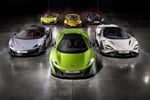
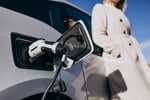









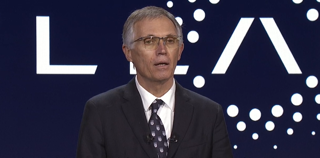
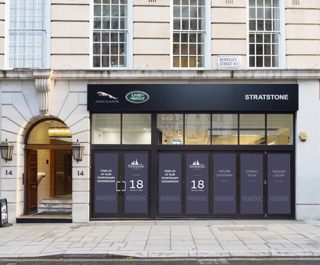
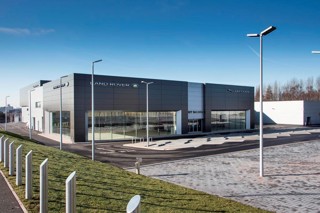
Login to comment
Comments
No comments have been made yet.